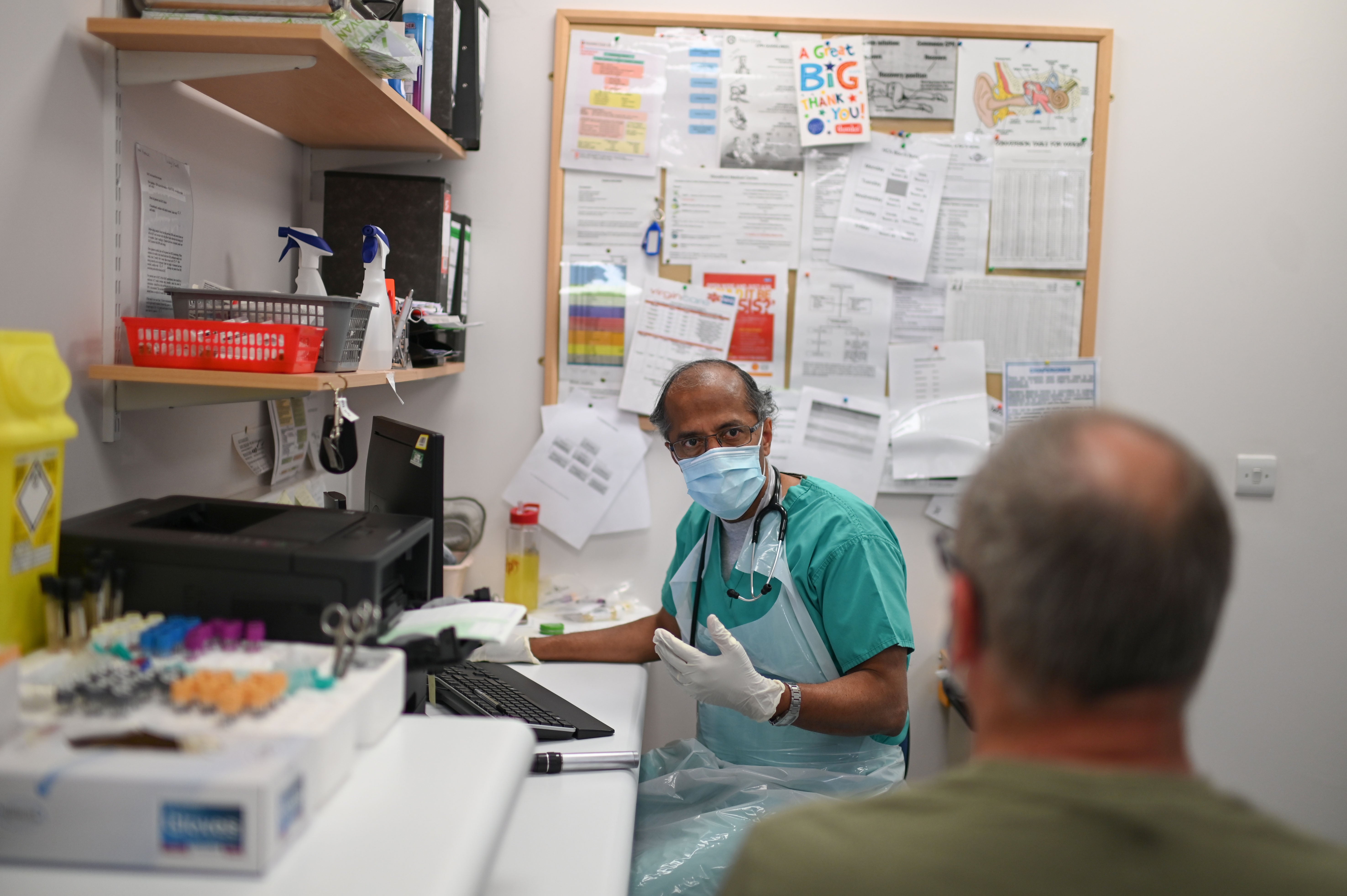Chris Whitty backs move towards more face-to-face GP appointments
The NHS is ploughing millions into a new package of measures aimed at improving access to GPs

England’s top medic has backed moves to introduce more face-to-face GP appointments, telling a conference of GPs the pendulum swung too far one way during the pandemic.
GPs have reacted with fury over the government’s plan to name and shame what it sees as under-performing GP surgeries as part of a new £250 million plan.
The NHS is ploughing millions into a new package of measures aimed at improving access to GPs, but practices which fail to provide an “appropriate” level of face-to-face appointments will not be eligible for the new funding.
Health secretary Sajid Javid, who has faced a backlash over the new plans, was due to address the annual conference of the Royal College of General Practitioners (RCGP) today but pulled out at the last minute.
The head of the RCGP described the attack from some politicians and sections of the media as “abuse” and said it was “demoralising and indefensible”.
England’s chief medical officer Professor Chris Whitty praised GPs for their work during the pandemic, but said the profession faced having to have a debate with the public about what could be provided.
He told delegates attending the conference in Liverpool that the topic of face-to-face appointments had “got rather more heat than it needs”. Before the pandemic, he said, many doctors including himself were wrong to be reluctant about online and digital consultations with patients, but he added things had now gone too far the other way.
“The pendulum will now need to come back to a point that isn’t quite out where it was in the middle of Covid, nor is it where it was in August 2019,” he said.
“I don't think it’s settled at the right point yet and the right point, in a sense, is where you optimise what works best for patients and what works best for the medical provision that is there.
“We as a profession have got to have a debate with the public who we serve and work out what is the right place for that, but also recognising that what we’re trying to do is to use the resources we’ve got in the best way we can and also recognising that, for many patients, a telemedicine solution is a better solution, including, for example... mental health, some people actually prefer a more distant relationship and there are a variety of other ones.”
Prof Whitty added the issue of face-to-face appointments should not be allowed to be “driven by a public discourse”, though he accepted it was “quite reasonable” for politicians to comment on it.
Professor Martin Marshall, chair of the RCGP, told delegates that GPs had worked tirelessly to support patients through the pandemic, and are now helping all those with conditions such as long Covid as well as patients on long NHS waiting lists.
He said GPs have found themselves at the centre of a “public storm over face-to-face appointments”.
He added: “The malicious criticism of the profession by certain sections of the media and by some politicians as a result of the shift towards remote working – introduced to keep our patients and our team safe and keep the service operating – has been the worst that I can remember in over 30 years as a GP.
“This widespread vilification of hard working GPs and our teams is unfair, it’s demoralising and it’s indefensible.
“No-one working in general practice deserves this abuse.”
Prof Marshall criticised the new plan announced by Mr Javid, saying: “The so-called support package for general practice in England announced this morning is most definitely not the answer to the challenges that we face in providing high quality care for our patients.
“Calling today’s announcement a missed opportunity would be the understatement of the century.”
Earlier, Dr Michael Mulholland, vice chair for professional development at the RCGP, told the college’s annual conference there had been a “change” to the line-up for the meeting and Mr Javid would not be addressing GPs.
To laughter from the audience, he said: “Unfortunately we do have one change to the programme. The secretary of state for health for England is unable to join us today either in person or by video link.
“This is because, and I need to get this right, he had to ‘clear his diary to ensure he can fight for the NHS in the spending review’, or be anywhere else you may have seen or heard him this morning.”
Speaking earlier on Sky News, Mr Javid insisted the government had no plans to name and shame GPs, but added providing “more data, more transparency” would help drive up standards across the country.
“It is important that patients have this information because I want to see a levelling up of healthcare throughout the country.
“We do need to understand what the differences are in healthcare provision across the country.
“This whole package today is about support. This is all about helping GPs so that they can do what they do best, which is seeing their patients.”
Join our commenting forum
Join thought-provoking conversations, follow other Independent readers and see their replies
Comments